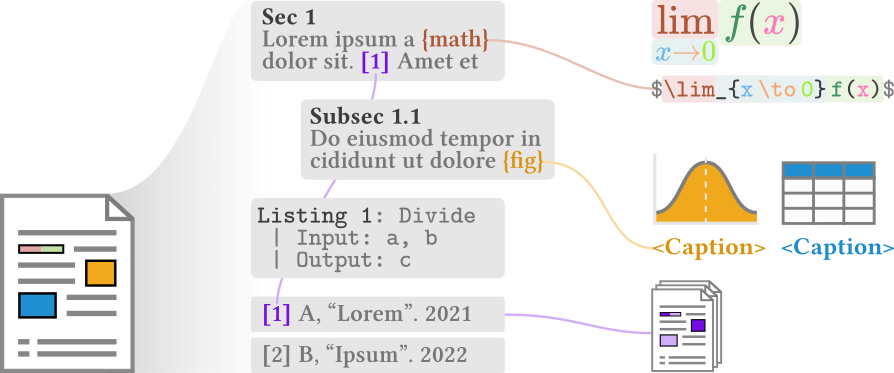I did a science

Over the course of the past five years, I pursued a PhD while working as a research associate at a university. In this post I want to briefly reflect on the experience.
For a bit of context: here in Germany, bachelor and master students are students — take lectures, write exams, pay administrative/tuition fees —, whereas people pursuing a PhD are part of the teaching and research body — give lectures, create/proctor/grade exams, have a full-time* contract and receive a salary. Accordingly, the wording in German changes from “Bachelor-Student” and “Master-Student” to “Doktorand”, doing away with the “-Student” compound.
*Full-time contracts are common in computer science, but in other fields, such as biology, I hear it is more likely one gets a 50% contract and salary while basically being expected to shoulder a 100% workload. Furthermore, there might be fields where doing a PhD involves taking (instead of giving) lectures/courses, but I haven’t heard of cases like that so far.
A story all about how, my life got flipped-turned upside down …
I wasn’t pushed around on a basketball court, but the prospect of doing a PhD nevertheless came quite sudden and brought a drastic change to my life plans.
Towards the end of my master’s thesis, I was set to move to Japan and had landed a job that would sponsor my work visa. A few days after receiving the job offer, though, I was asked by my thesis supervisor if I’d join him in the lab he’d switch to do to a PhD.
Doing a PhD was never something I had given an awful lot of consideration. However, several factors made my SO and me come to the conclusion that deciding for the PhD position was the better choice.
- I always regarded science the be a worthwhile / honorable profession, and the prospect of getting an insight into how new knowledge is attained nowadays (and possibly be disillusioned by the reality of things) was exciting.
- The job offer in Japan was okay but nor amazing.
- I had no savings to speak of, which I could rectify by doing the PhD.
- The PhD position would (likely) offer me a lot of freedom, allowing me to keep on dabbling with Phyton and LaTeX the way I had been doing at uni and through private projects so far.
- Given I was more or less invited to the PhD position by my thesis supervisor—who I got on really well with—, it was a unique “low effort, low risk” chance to get into a PhD program.
How the sausage is made
Starting with the big picture: personally I overall really enjoyed my time as a PhD student. I took me five instead of the initially planned four years to finish in the end, and finally being able to put a check-mark on a project of that scale you’re solely responsible for was a huge relief, but there was much to be enjoyed along the way.
I really like the casual atmosphere that I experienced in (the computer science corner of) academia. There never seemed to be much pride or status involved in interactions. It’s like everyone’s your colleague from the get-go. In the same vein, the sense of community was grate—e.g. at conferences or during research stays. Speaking of which, my short stay in Singapore and a bit longer stay in Tokyo were some of the best experiences I made during my PhD time.
An aspect I really didn’t like, which contrasts the “honorable profession” and “casual atmosphere” points above, is the good old “publish or perish” nature of academia today. It felt at times that more than the actual benefit, rigor, and contribution of one’s research, it’s important to get things out fast and at prestigious venues. Additionally—and here we come to the disillusion point—, computer science research to me seemed to be in a “wild west” state, where there’s no rigorously followed practice of establishing knowledge, and oftentimes nice framing and convincing writing is sufficient, despite double-blind peer review.
So all in all, I really enjoyed my time in terms of the personal experience, but felt the expected output volume over a more or less fixed time period was really counterproductive to “doing things properly”. Oh well, I did my best within the given constraints, and here’s the result in “publish or perish metrics”:
- Screenshot from my notes (six publications and how they relate to each other)
- PhD thesis (GitHub repo)
- PhD defense (GitHub repo)
In terms of “what actually matters” metrics, I made new friends, grew as a person, developed new skills, was able to visit new places, and overall had a good time.
Illustrations
Similar to writing this blog, I enjoyed writing papers to present what I did in my research. What I especially enjoyed is creating illustrations. He are some of them:
The rest below with a white background. Open with caution if you’re in darkmode.
scholarly_data_lifecycle.svg
💾 scholarly_data_lifecycle.svg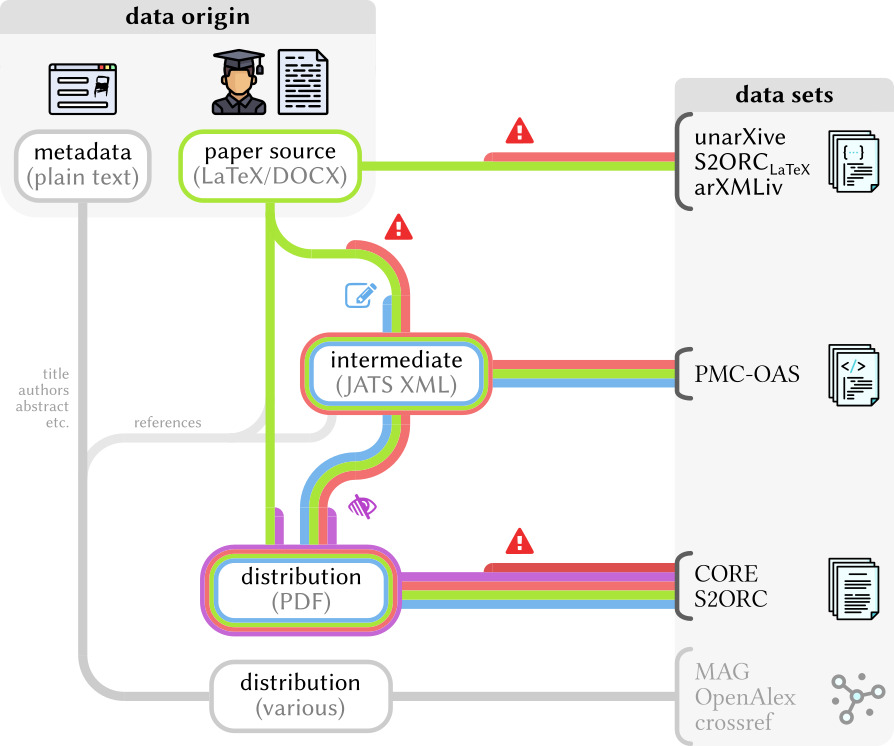
refbee.svg
💾 refbee.svg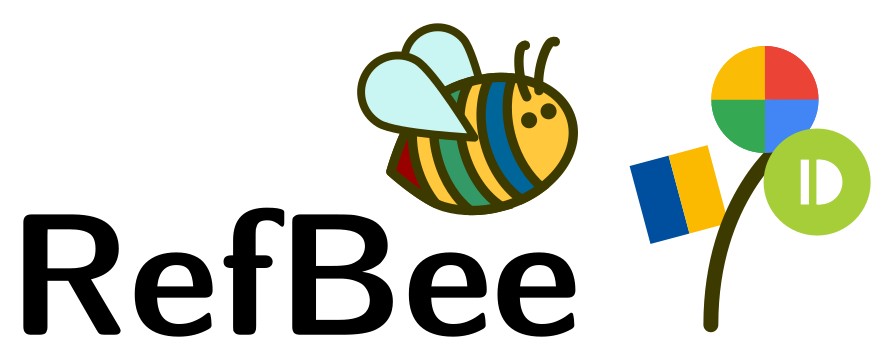
outlook.svg
💾 outlook.svg
hyperpie.svg
💾 hyperpie.svg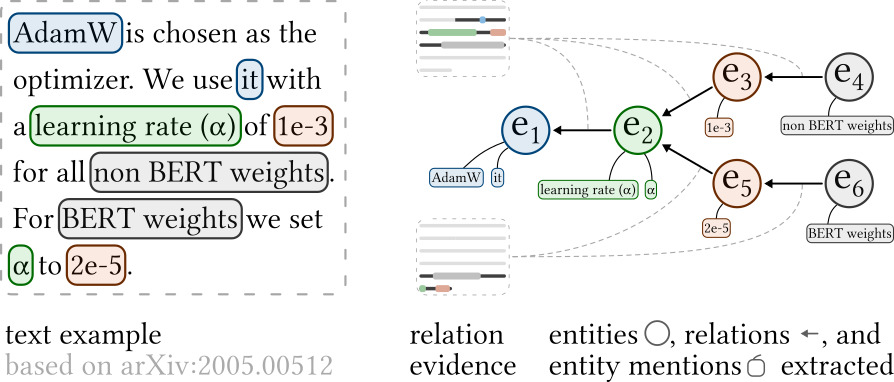
refblock.svg
💾 refblock.svg
refparse.svg
💾 refparse.svg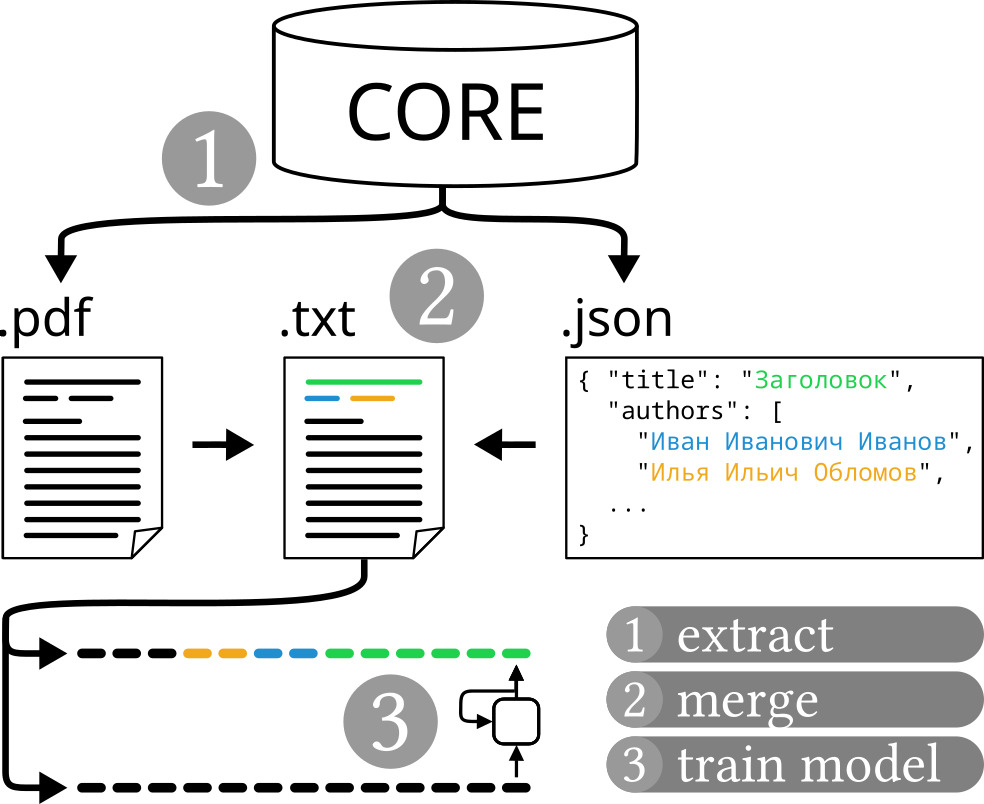
Back to the wold of engineering
While I overall enjoyed working in academia, I decided to not continue this path and switch to industry. This decision was largely due to the following factors.
- With the aforementioned pressure to publish, I never felt able to put enough time into “proper” software development. So lots of small prototypes, no test, etc. Because of this, I was not really growing as a software developer. There is a possibility that after finishing the PhD degree I’d feel more comfortable with investing time into proper code and more sustainable/longer lasting projects, but who knows.
- Seeing what the postdocs around me were doing day-to-day, I had the strong impression continuing in academia would mean more management work and less getting your hands dirty with code and data.
- I really disliked what I perceived as a need to overly “sell” one’s research ideas instead of it being sufficient/viable/expected to objectively describe them.
Links
Lastly, here are some links to stuff I like.
- Open sharing, transparency, etc.
- sci-hub (currently reachable at
sci-hub.st— changes from time to time - Initiative for Open Citations
- OpenReview — open peer reviews
- CRediT (Contributor Roles Taxonomy) — make author contributions transparent
- Preprint servers like arXiv, bioRxiv, OSF PREPRINTS, Jxiv, and many more
- Peer review without gatekeeping — peer review preprints and have authors decide when to publish
- PLOS — an open access publisher
- Public Money, Public Code
- sci-hub (currently reachable at
- Interesting stuff
- typist — maybe a viable alternative to LaTeX
- Podcasts
To all PhD students out there still in the trenches: hang in there! 💪
2024-05-28
